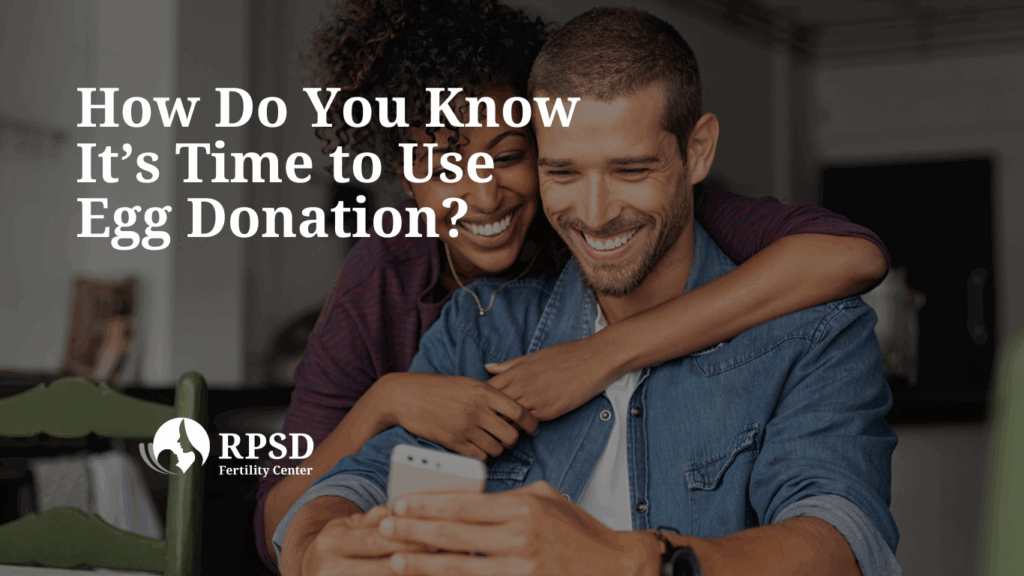
For many individuals and couples, deciding to use donor eggs is one of the most significant—and hopeful—steps in the fertility journey. It’s a decision filled with questions, emotions, and deep reflection. At Reproductive Partners Fertility Center – San Diego (RPSD), we help guide you with clarity, compassion, and expertise.
If you’re asking yourself whether it might be time to explore egg donation, you’re not alone. Here’s what to consider when making this important decision.
You may be encouraged to consider donor eggs if you’re facing:
Each fertility journey is unique, and so is the path that leads to donor egg IVF.
If you’ve undergone two or more IVF cycles without success—especially with poor embryo development or low egg quality—donor eggs may offer significantly higher success rates.
Tests showing low anti-Müllerian hormone (AMH) or high follicle-stimulating hormone (FSH) levels may suggest your body isn’t producing enough high-quality eggs.
Fertility naturally declines with age, especially after 40. If you’ve tried other treatments without success, donor eggs can offer renewed hope with better pregnancy outcomes.
If genetic screening shows a high likelihood of passing on a serious condition, your provider may recommend egg donation to reduce the risk to your child.
For many hopeful parents, there’s a turning point where the focus shifts from having a genetic connection to simply growing a family. When that emotional shift happens, it may be the right time to explore donor egg IVF.
At RPSD, we help you navigate every step of the donor egg process—from selecting a donor to legal counseling and treatment coordination. Our egg donation program offers:
You’ll never walk this path alone—our team is here to ensure you feel supported and informed at every turn.
Choosing to use donor eggs is not about giving up—it’s about embracing a powerful option to help you achieve the family you’ve dreamed of. Whether you’re just beginning to explore this option or you’re ready to take the next step, we’re here to help.
Schedule a consultation with one of our RPSD fertility specialists today to explore if egg donation is the right path for you.
Our skilled fertility specialists are here to help. Contact us today and let’s discuss the next phase of your fertility journey.
Our skilled fertility specialists are here to help. Contact us today and let’s discuss the next phase of your fertility journey.